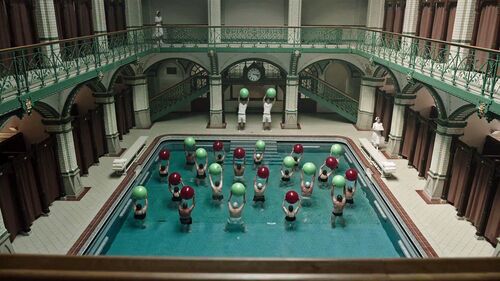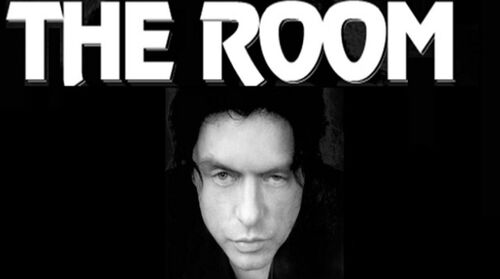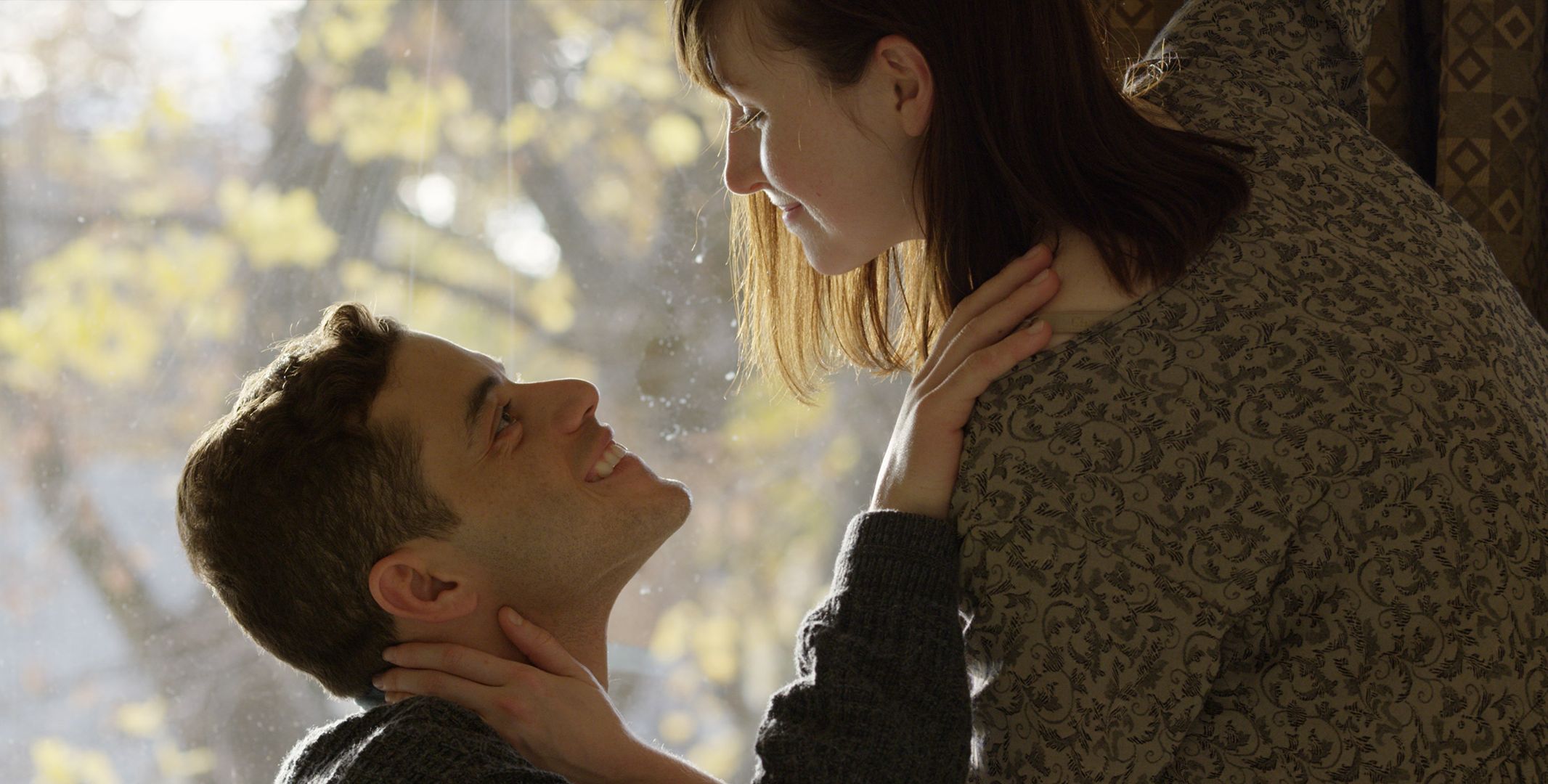
Buster's Mal Heart - Successfully Bold
 Warning: This review contains spoliers. Also, to quell confusion, I have referred to the main character as only "Jonah" and "Buster," cutting out "Jonas" to keep things from being clunky. Upon review, I believe the "mystery man" I refer to is named "Brown." For the sake of the article, I will keep him listed as the "mystery man."
Warning: This review contains spoliers. Also, to quell confusion, I have referred to the main character as only "Jonah" and "Buster," cutting out "Jonas" to keep things from being clunky. Upon review, I believe the "mystery man" I refer to is named "Brown." For the sake of the article, I will keep him listed as the "mystery man."
Summary
“Buster’s Mal Heart” (2017, Sarah Adina Smith) follows Jonah Cueto (Rami Malek,) an enigmatic family man and hotel concierge. Unfortunately, life never felt quite right for Jonah, and the only pieces of his life that seemed to bring him true satisfaction were his wife and child, Marty (Kate Lyn Sheil) and Roxy (Sukha Belle Potter.) One night, a man who refuses to reveal his name (DJ Qualls,) heads into the hotel at which Jonah works and immediately captures his attention. As if speaking to the internal struggle Jonah has with himself that strives for complete liberation and freedom, the man sparks a conversation regarding the “system” under which we all reside, and the system that has employs him to “find the bug and fix the binary.” Time does not reveal anything specific about the man, but simply raises more questions about him and the nature of his relationship with Jonah. As their relationship grows deeper, so do the topics of their conversation. The mystery man begins speaking of an “inversion,” seemingly a Y2K natured reality shift in which the universe will be destroyed and reborn through another Big Bang, of sorts. As the film carries on, the relationship between the two men grows increasingly toxic, as they formulate a burglary scheme in the hotel at which Jonah is works. Jonah quickly realizes the gravity of his mistakes and cuts ties completely with the man, but not long thereafter, the man reappears at the hotel with a bloodied face, asking Jonah for a room. Jonah replies that he knows the feeling of needing somewhere to sleep and grants the man a room next to him, his wife, and his child. After a long shift, Jonah returns to his room to discover an unmitigated nightmare as he lifts the sheets of his bed finding his family murdered in their sleep. The mystery man had vanished.
This is the basis for the alternate stories of Jonah that are displayed throughout the film. As the film progresses, it becomes heavily sprinkled with images of Jonah water-locked on a life raft in the middle of a current-less ocean; jumping from unoccupied vacation home to unoccupied vacation home while syphoning the goods and comfort they have to offer; and running from the police while hiding out in a cave buried deep in the wilderness. After the murder of his family, Jonah decides to vacate his town and abandon his job. He drives into the wilderness and stops at a fork in the road where he incomprehensibly splits into two people, two separate versions of himself, who proceed to embark on different adventures (one at sea, the other through the wilderness and the vacation homes that reside within it.)
Split I: The Sea
Upon this split, it becomes clear that two versions of Jonah’s personality have split, and both amalgamated make up the unabridged version of Jonah the viewer has followed for the majority of the film. Both versions of Jonah have the knowledge and internal recognition that the “Inversion” is coming and both choose to go about experiencing it in different ways, each with different intentions and character undertones driving their resolutions. On one hand, the Jonah residing at sea represents Jonah’s struggle with stability and happiness. After his family is evidently murdered by the mystery man, this version of Jonah skips town and embarks on a commercial fishing voyage. This ship sinks, leaving Jonah stranded in the middle of the ocean. In many ways, the fate Jonah faces via his fishing voyage is reminiscent of the tragedy he faced in losing his family. His impulsive decision to go to sea is a last-ditch effort to permute his life after losing his principal source of happiness. After the incident, he floats aimlessly at sea with no end in sight, floating in an ocean with no current. He describes the tenuous situation at sea as being engulfed in “the belly of the whale,” with no way out and no purpose. In some regard, Jonah has, in fact, achieved ultimate freedom. The perpetual conservation of his experience in a realm of no law, man, or responsibility provide him with what he has always ventured for: pure existence and freedom.

Split II: The Wilderness
Jonah’s second half, going by the name “Buster,” who burgles the capital and opulence of vacation homes and the wilderness, faces a fate entirely opposite than that of his first half. After his family’s funeral and Jonah’s character split, Buster plunges deep into the wilderness where he breaks into vacation homes occasionally, taking hostages if necessary but, clearly, never intending to do them any harm. Buster is far more jovial than his alter-ego, but additionally far more non compos mentis, insane. He does not hesitate to call into radio shows to warn them of the great “Inversion” that he is convinced will unleash its vigor upon mankind. Buster is a man freed from all constructs of society, a tramp, roaming with no purpose other than existing prior to the “Inversion.” This, however, is illusory. After some time, Buster is discovered and hunted by local police forces for the crimes he has committed. The development of Buster, being as brazen as he is on screen, becomes the first piece of evidence in support of the “Inversion.” From apparent freedom, Buster is snatched from his place of rapture and reinserted into a place of despotism, the same place of despotism that he fought to avoid.
The Reunion
The outcomes that the actions of these two versions of Jonah yield bring the two together once again. Buster is shot by the police, but ominously dissipates without a trace before making an appearance on his alter-ego’s raft. For the first time, both versions of Jonah are together once again. The two, for the vast majority of this film, could never coincide with one another and thus, as “sea Jonah” describes, were stuck perennially in the belly of the whale, with no escape and no purpose. This “belly of the whale” analogy is the catalyst for Jonah’s dedication to the “Inversion,” and a prominent explanation of the life that Jonah had led before meeting the mystery man, before the death of his family, and before the split. There is a biblical connotation to this consultation between Jonah and Buster, taking place in, of course, the Book of Jonah. This story includes a whale swallowing Jonah whole, and as he sits in lonesome at the bottom of the creature’s stomach, Jonah states that the whale will either continue eating and terminate his life or discard him through his blowhole and it is necessary that "another man" come out the other side.
The Inversion
In many ways, the “Inversion” is a direct, modern reconstruction of the action taken by the whale in the Book of Jonah. Across his entire life, Jonah/Buster had been stuck in the belly of the whale, suffering at the hands of his imperfections, past, and yearning to be free. The decision of the whale in the Book of Jonah on whether or not to discard the man was as imminent, unknown, and equally paramount to the possibility of the upcoming “Inversion” that Jonah/Buster both fear and welcome. Both versions of Jonah in the film finally reconnect after years of separation, each having reversed the paths of their lives to mirror that of the other. Buster, for example, saw himself shift from complete freedom into complete custody, while Jonah’s other half saw himself break from custody into complete freedom. Both Buster and Jonah experienced a contrary character arc than his alter-ego, but both wound up in the same situation. Freedom given, or freedom taken, neither version of Jonah ever encountered the happiness they sought. This then begs the question: can we be both happy and free? Jonah’s happiness had been bound to his family, but his freedom had been sacrificed. When his family departed, his freedom was granted but his happiness had been left behind. Until the “Inversion.”
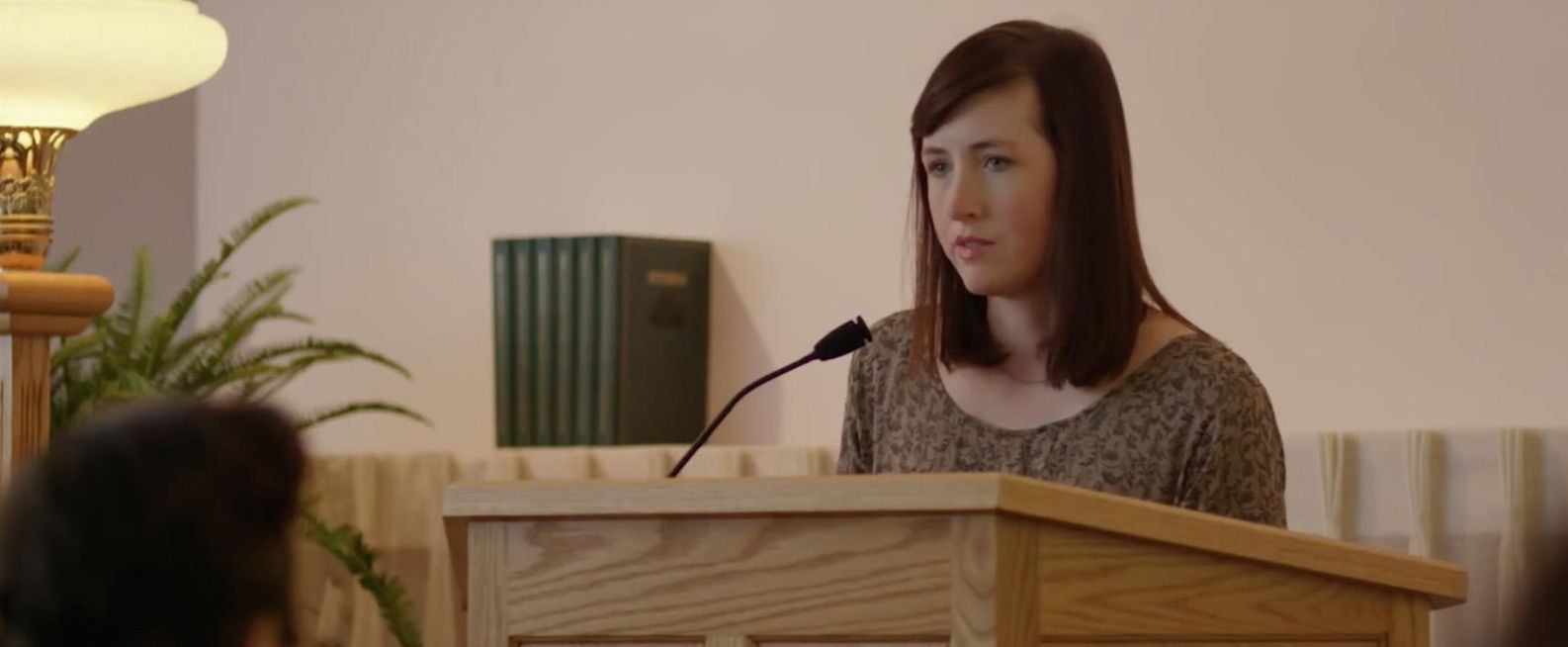
The Island
The film sprinkles many references to a proverbial “island” in another dimension where conflict (such as the conflict between freedom and happiness) does not exist. Many times, Jonah hears a metaphysical scientist discuss this place of eternal bliss, claiming that it requires a “big-bang-esque” alteration to our universe to achieve: eerily similar to the “Inversion” the mystery man convinces Jonah of. Once both, split versions of Jonah reconvene on the life raft at sea, they fight for a while before suddenly, they vanish. The film concludes with Jonah, whole and complete, lying on a beach, sunny and warm, his family in the background. The “Inversion,” finally, took place. This place that Jonah has transcended to was the result of the “Inversion,” a relocation from a place of disconnection to a place of harmony and unity. The secret of this film is that the “Inversion” happens, though not on the grand scale that Jonah had anticipated. Instead, it was a fundamental change in him rather than a change to all of mankind.
The Culprit
There is much discussion about whether or not the mystery man killed Jonah’s family, or if Jonah himself did the deed. At first glance, it appears incontestable that the mystery man is responsible for the murders, but upon closer inspection, Jonah becomes the lead suspect. After the police review video tapes from the scene of the crime, the mystery man is nowhere to be seen: only Jonah, talking to himself. Now, in accordance with many of the decisions Jonah makes throughout the film, it appears he suffers from mental illness, likely in the form of schizophrenia. Sarah Adina Smith does a fantastic job of weaving together Jonah’s possible struggle with schizophrenia and withstanding suspicion that the mystery man may still be at fault by affixing supernatural eventualities throughout the mundane events that bog down the days following the murder. In essence, she gives the viewer a choice as to who they believe committed the crime. I, personally, am inclined to believe that the mystery man is culpable. Much of the film, including its conclusion, is mechanized by elements of the supernatural: the “Inversion,” the “system,” the “binary.” All of these fundamental ideas exist in the dimension of this film, but require some amount of faith to understand. Without accepting the inherent supernatural element this film is tied to, it becomes increasingly difficult to accept much of the plot and character development that make this film what it is. His discussions of working outside the “system,” debugging and fixing the binary, and Jonah’s phone call with a TV therapist during which she states that “the bug has been fixed,” lead me to believe that the mystery man works for some group outside of Jonah’s system of reality to alter and repair its deficiencies. In addition, the “Inversion,” against the odds, does take place, meaning that the mystery man’s efforts were fruitful. Working outside Jonah’s system of reality explains both the deaths of his family in addition to the fact that the man did not appear on hotel video footage after examining the scene of the crime.
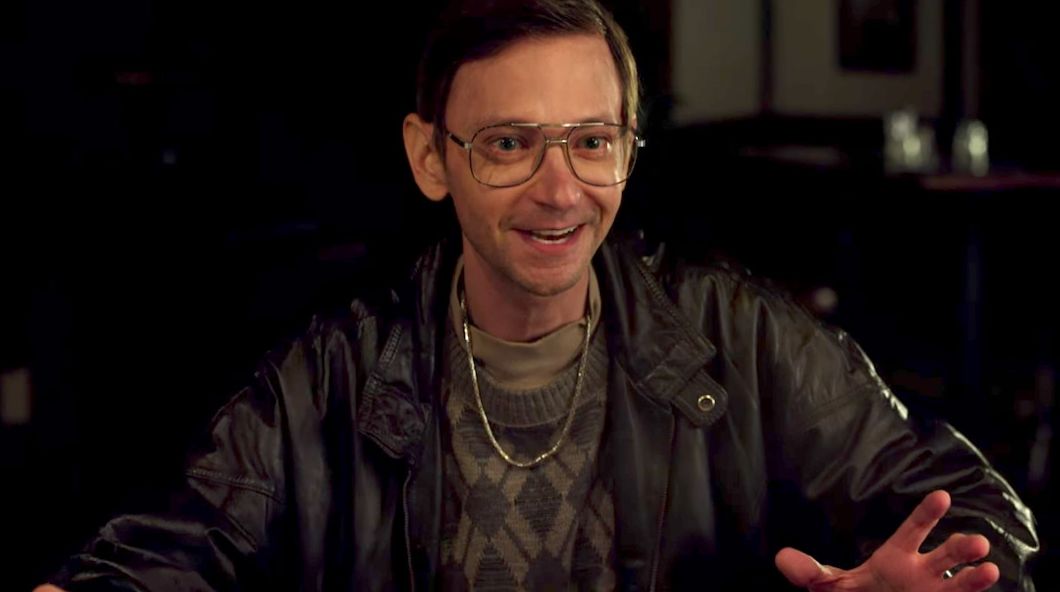
Final Decision
Overall, this film was mind-bending and intriguing, perfectly braiding together components of reality with components of the supernatural to captivate audiences and leave them with questions. It is the type of film that leaves viewers wondering, discussing, and interrogating both each other and their own perception regarding its phenomena. It was well shot and well polished, using dark yellow lighting to portray imminent danger or enigma while using contrasting whites and blues to illustrate changes in Jonah’s life. It does a fantastic job sketching a picture of crushing monotony without being monotonous within itself. Rami Malek turns in an incredible performance, nailing what are truly three separate characters. Overall, this film was well written, well directed, and well acted giving it a very clean appearance and intriguing concept. Each shot felt very purposeful, sparing no meaning to any scene. I greatly enjoyed this film, and it, in fact, has earned consideration for a second viewing. Final decision: 8/10.
